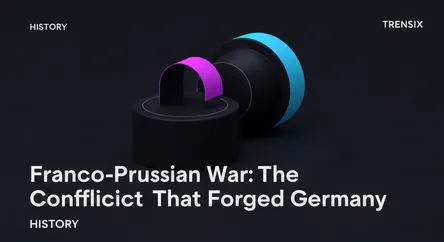History
Franco-Prussian War: The Conflict That Forged Germany

A concise overview of the 1870-1871 Franco-Prussian War, a pivotal conflict that led to the unification of Germany and reshaped European politics.
What is it?
The Franco-Prussian War was a conflict fought from 1870 to 1871 between the Second French Empire, led by Napoleon III, and the German states of the North German Confederation, led by the Kingdom of Prussia. The war was the culmination of years of tension, strategically provoked by Prussias Chancellor Otto von Bismarck to unite the German states against a common enemy. The immediate cause was a dispute over the candidacy of a Prussian prince for the Spanish throne, which Bismarck manipulated through the infamous Ems Dispatch to anger the French government into declaring war.
Why is it trending?
This war remains a pivotal event in European history because it dramatically altered the continent's balance of power. The decisive victory of Prussia and its allies led directly to the unification of Germany, creating a powerful new nation in the heart of Europe. It marked the end of French dominance on the continent and the collapse of Napoleon III's empire, giving way to the French Third Republic. The conflict's outcome and the subsequent annexation of Alsace-Lorraine by Germany fostered a deep-seated resentment in France, setting the stage for future conflicts.
How does it affect people?
The war's most significant impact was the creation of the German Empire, which dominated European politics and industry for decades. For the French, the defeat was a national humiliation that led to political instability, including the revolutionary Paris Commune. The harsh peace treaty, which required France to pay a large indemnity and cede the territories of Alsace and part of Lorraine, fueled French nationalism and a desire for revenge. This animosity became a primary driving force behind the alliances and tensions that ultimately erupted into World War I in 1914.